The growing complexity of the veterans' disability benefits claims process has led to the rise of illegal for-profit companies like Veterans Benefits Guide. However, rightfully so, concerns over the ethics of these companies persist. This blog post delves into the ongoing debate surrounding for-profit companies, to include the clash between advocates and critics in the wake of the Promise to Address Comprehensive Toxics (PACT) Act.
For clarity, the term “illegal for-profit companies” will be used to describe unaccredited companies that are charging fees for assisting veterans, something that is not currently allowed under the law. These companies should not be confused with law firms, such as Stevens & Sullivan, LLC, whose attorneys and agents have been accredited by VA to represent Veterans and charge reasonable fees when successful.
The Landscape of Veterans' Disability Claims:
For today’s veterans, seeking an increase in disability benefits can be a daunting task. The process often involves extensive paperwork and preparation. To streamline this process, some are turning to illegal for-profit companies, sparking a heated debate within the veteran community.
The Legal Quagmire:
Most Veterans' advocates, such as the Veterans of Foreign Wars, decry the involvement of illegal for-profit companies, branding their consulting agreements as predatory. The ethical ambiguity surrounding these comapnies has been a long-standing issue, exacerbated by the surge in claims following the PACT Act's passage. To make matters worse, these illegal for-profit companies, such as Trajector Medical, are using unethical tactics to trick veterans into using their services.
The Rise of National Association for Veterans Rights (NAVR):
In response to the growing scrutiny, a coalition of illegal for-profit companies launched the National Association for Veterans Rights (NAVR). According to their website, their mission is “to promote ethical and transparent practices within the industry. This move aims to improve the sector's reputation and gain the approval of federal regulators.” However, conspicuously absent from their website is the fact that their services are illegal, and the fees they charge are considered per se unreasonable by VA.
Legislation on the Horizon:
Critics of the illegal for-profit companies seek to eliminate them from the equation entirely, advocating for legislation like the GUARD Act. This bipartisan proposal, supported by major veterans' organizations, would reinstate criminal penalties for companies charging fees for unsanctioned claims work.
Conversely, the PLUS Act is being pushed by the NAVR which , among other things, makes VA accreditation automatic after 90 days if VA has not recognized accreditation—nearly guaranteeing that the VA will not have time to investigate potential red flags. Further, under the proposed Plus Act, fees on claims would be capped at an arbitrary number that would likely drive skilled and accredited attorneys or agents away from practicing in this field, thereby limiting Veterans' options for representation. Furthermore, it also allows fees of 5X the amount of monthly benefit increases based on little more than a simple consultation. This is a huge sea change in what VA allows now, and ultimately, bad for veterans.
The For-Profit Industry's Defense:
In response, the illegal for-profit companies argue that their services are essential, especially given the increasing complexity of the benefits system and the backlog of disability claims. Peter O'Rourke, head of NAVR and former acting VA Secretary, likens their role to that of a knowledgeable friend assisting with the claims process, albeit for an unreasonable and illegal fee.
The Veterans Affairs Stance:
The Department of Veterans Affairs (VA) discourages the use of illegal for-profit companies but has not directly intervened in the ongoing debate. VA Secretary Denis McDonough emphasizes the availability of free services through veterans service organizations, despite a doubling of backlogged first-time disability claims.
The Fight Ahead:
With legislation like the Wounded Warrior Access Act recently passed, and the ongoing clash between illegal for-profit companies and veterans' organizations, the future of the industry remains uncertain. Both sides continue to present their cases, leaving veterans to navigate a complex landscape in their pursuit of deserved benefits.
Contact Stevens & Sullivan, LLC Today
As the debate over for-profit assistance in veterans' disability claims rages on, veterans are left with crucial decisions to make. If you would like help making those decisions, please call our office at 404-467-9017 for a free consultation. All our attorneys are properly accredited by VA .
For more information on how to avoid illegal for-profit companies, check out this document created by the Veterans of Foreign Wars and this fraud alert published by VA’s Office of Inspector General.

